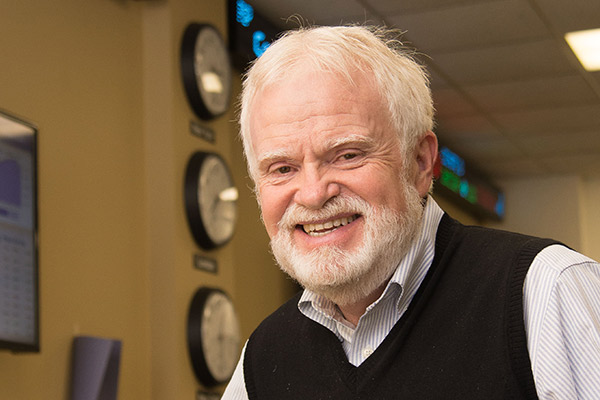Welcome to the Institute for Responsible Technology (IRT) at Nazareth University. A pioneering entity in the United States — formed in 2020 as the Institute for Technology, Artificial Intelligence, and Society (ITAS) — we have evolved to an identity that better encapsulates our commitment to the ethical and responsible development and application of artificial intelligence and emerging technologies.
Our focus | Our mission | Degree programs | Why choose IRT | Contact Us
Our focus
Professional Development and Industry Certifications: IRT offers a comprehensive suite of professional development programs and industry certifications in responsible and ethical development practices for artificial intelligence and emerging technologies, ensuring our graduates are both technically adept and ethically aware.
Industry Partnerships and Co-Research: The institute actively cultivates partnerships with industry leaders to co-research the application of AI and emerging technologies in business, to support innovation. These partnerships aim to explore and address the societal implications of these technologies, ensuring their development and deployment are responsible and ethical.
- Member of the Content Authenticity Initiative, working together to fight misinformation and add a layer of verifiable trust to all types of digital content, starting with photo and video, through provenance and attribution solutions.
Advancements in AI and Emerging Technologies: IRT is a hub of innovation. We are committed to pursuing cutting-edge advancements in artificial intelligence and other emerging technologies. Our research is guided by a commitment to responsible development, ensuring our technological breakthroughs contribute positively to society and adhere to the highest ethical standards.
Undergraduate and Graduate Degree Programs: IRT offers a range of bachelor's degree programs in artificial intelligence, ethical data science, and other emerging technologies as well as a master's degree in business analytics and artificial intelligence. Our programs equip students with the skills and knowledge to navigate and influence the rapidly evolving tech landscape, with an emphasis on the potential societal impact of these technologies.
Our mission
The Institute for Responsible Technology's mission is to lead the way in the ethical and responsible development and application of artificial intelligence and emerging technologies. We strive to educate the innovators of tomorrow, pioneer groundbreaking research, foster meaningful industry partnerships, and lead the discourse on the societal implications of new technologies. We are committed to shaping a future where technology serves society responsibly and ethically.
Why Choose IRT?
Choosing to study, research, or partner with IRT means choosing to be part of a future where technology is guided by a deep understanding of societal needs and ethical implications. We offer forward-thinking education, innovative research, thought leadership, and impactful partnerships. Join us as we shape a future where technology serves society responsibly.
Our team
Tapping Nazareth's expertise
Jeff Allan is regularly interviewed by media for insights on artificial intelligence.
AI, free speech, and the future
Core Faculty

Wendy Norris, Ph.D.
Specializing in computational thinking, human-centered computing, and ethical data science practices, Dr. Norris brings her unique project-based learning approach to IRT. Her commitment to real-world problem-solving shapes our ethical data science program.

Jennifer Leigh, Ph.D.
Dr. Leigh offers cutting-edge teaching, learning, and assessment approaches based on her co-learning collaborations with students and her international research on GAI use in global virtual teams. She draws on two decades of classroom experience, combined with her understanding of academic research on management education and ethics through her co-editor experience at the Journal of Management Education and at Business Ethics, Environment, and Responsibility.

Mark Weber, M.B.A.
As the director of the business, artificial intelligence, & innovation undergraduate program, Weber brings his extensive experience in marketing to IRT. His practical business acumen ensures that our students are prepared for market realities and future innovation.
Contact Us
Connect with us and join our mission. Whether you're a prospective student, a curious community member, or a potential partner, we'd love to hear from you.
Your input, ideas, and collaborations are crucial to the success of our shared mission to guide technology for the betterment of society. We look forward to hearing from you.